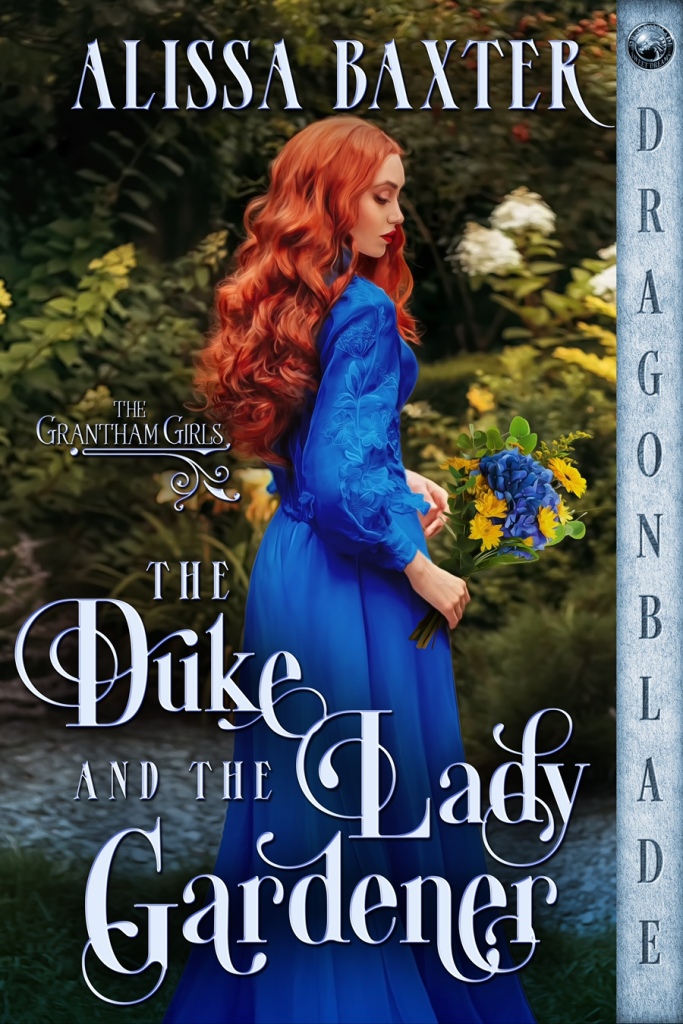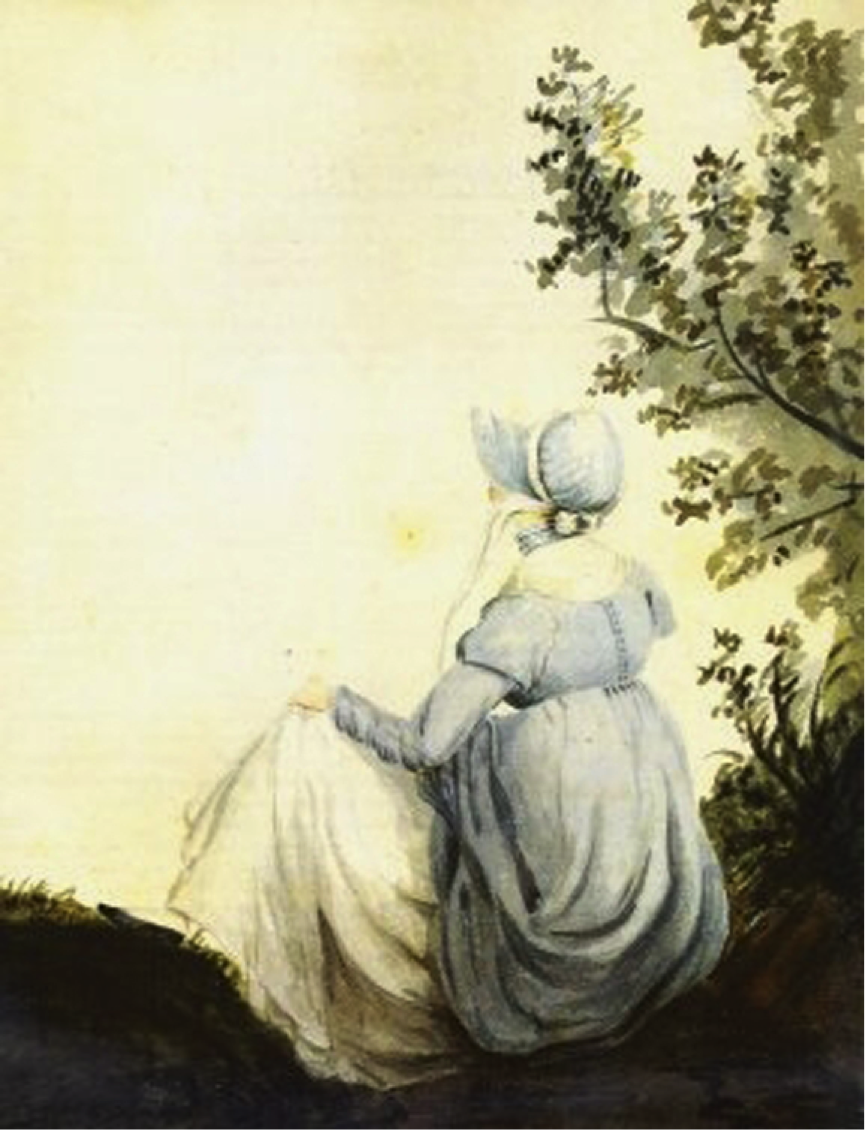Book Review by Brenda S. Cox
“Walking in a maze mirrors life’s twists and turns and dead ends. Perhaps that is why humans enjoy the experience so much.”
“Indeed. Although in a maze, you can retrace your steps and find the correct way. In real life, one wrong turn can have serious consequences.”–The Lord and the Lady Astronomer by Alissa Baxter
I just finished a series of three delightful novels, the Grantham Girls by Alissa Baxter. I love it when I get to learn more about science in the Regency period and enjoy a good story at the same time. Minor strands of faith and the church are woven in as well.
Three sisters and a brother were raised by a father who loves “natural philosophy,” which is what they called science at that time. They are grown now, and their parents have died. But they are each still fascinated by some aspect of the natural world. Relatives want each of the young ladies to find a husband, though they all have enough money to be independent. They want to continue their scientific interests without being seen as “bluestockings,” which might ruin their chances in society.
As far as I can tell, the books are all carefully researched, with real publications of the time and the accomplishments of historical people woven nicely into the stories. The author gives notes at the end of each book about the real history, and excellent lists of resources if you want to explore further.
Here’s the series:

The Duke and the Lady Gardener
Alexandra has great compassion for the poor and needy. So much so that she has become a Robin Hood-style highwayman [highwaywoman?] to force rich landlords to provide for those they are oppressing.
Her scientific interests are botany and agriculture. She even lays down layers of manure herself in planting a garden. Up-to-date on all the latest farming techniques, she advises the duke she recently met. Will he be like other local gentry, uninterested in learning from a woman and ready to wring every groat he can out of his land and people? Or will he support Alexandra’s efforts and help her get over her fear of commitment?
“Her papa advised her that horticulture could be divided into two distinct branches, the useful and the ornamental. It was the first branch that occupied the principal attention of the members of the [Horticultural] Society, although they did not neglect the second. And although Alexandra appreciated a beautiful garden as much as anyone, her attention, of necessity, was focused on the useful at present, as she ensured sufficient fruit and vegetables were grown at Grantham Place to fill the food baskets she distributed to the destitute.
When Alexandra was a young child, her mother had spoken to her many times about the importance of caring for the weak and penniless. ‘It is our duty, my love, to plead the cause of the poor and needy and to visit the fatherless and widows in their affliction.’”–The Duke and the Lady Gardener
Two of the science sources listed for the novel
Transactions of the Horticultural Society of London: Volume One.
Gardening Women, Their Stories 1600 to the Present by Catherine Horwood
Real-life innovators are also mentioned. The hero says, “I know of many landlords in the country, the Duke of Bedford and the Earl of Egremont being of their number, who have devoted themselves to bettering the conditions of their tenants by teaching them the agricultural methods that can bring them prosperity.”

The Baron and the Lady Chemist
I liked this one best, with my background in chemical engineering! Thea loves chemistry. She has learned from a book by a real lady chemist of the time how to dye silk in gorgeous colors and designs. She loves to experiment in making new designs with new materials. However, during a time when foreign dyed silks had to be smuggled into the country, she comes under suspicion. Her grandmother doesn’t want her to talk about her chemical interests, but how else can she explain her designs?
Thea also has to overcome her fears, stemming from tragedies in her past.
I enjoyed the author’s use of metaphors from each lady’s specialty. For example, in The Baron and the Lady Chemist, the heroine thinks of the hero in chemical terms: “He was a completely unknown element.”
One science source listed for the novel
Fulhame, Mrs. An Essay on Combustion, With a View to a New Art of Dyeing and Painting. Wherein The Phlogistic and Antiphlogistic Hypotheses are Proved Erroneous. London, 1794.
Mrs. Fulhame appears in the story, as well as Dr. Willkinson, who lectured on chemistry in Bath. Jane Marcet’s book, Conversations on Chemistry, for teaching chemistry to young ladies, also appears, plus a mention of Mary Shelley, who wrote Frankenstein.

The Lord and the Lady Astronomer
Here we have both astronomy and antiquities, with a visit to Bath rather than London. Abigail has helped her brother John with his astronomical observations since she was a child, and now she is helping her uncle with a new project, observing the stars. Of course her uncle has a handsome neighbour, who loves studying the stars as well as Roman artifacts.
To muddy the waters, another neighbour is charming but insolvent, while another wants to go on a Polar expedition but his intended bride is not in favor. Multiple romances and thwarted love affairs come together in this fun story of love and the stars.
Abigail says, “The vast expanse of the night sky is full of endless possibilities, epitomizing true freedom.”
“As opposed to untrue freedom?” [asks Lord Rochdale] . . .
“Untrue freedom exists,” she said slowly. “It comes from the lies we tell ourselves to make ourselves feel better about the world.”
One science source listed for the novel
Stauberman, Klaus. “Exercising Patience: On the Reconstruction of F. W. Bessel’s Early Star Chart Observations.” Journal for the History of Astronomy 34, no. 1 (2006): 19-36. The author tells us in a note that she is imagining that Bessel might have had other people try out his techniques, as characters in her novel are doing.
I recommend this series for those who enjoy a light, clean Regency novel, with some well-researched science of the time woven in. I read them out of order, which worked fine. They are currently available on Kindle Unlimited as well as for sale.
Thea echoes Fanny Price in Mansfield Park when she says, “There is something particularly healing about being out in nature, is there not? All our anxieties and concerns fade to nothing. It places our lives in their proper perspective.”—The Baron and the Lady Chemist
Abigail feels similarly: “As she felt her axis tilt back toward equilibrium once more, she released a sighing breath. Thus it always was with her—streams, rivers, lakes, and waterfalls could somehow still her soul.”–The Lord and the Lady Astronomer
I hope the joys of nature, even in mid-winter, are putting your life in perspective and stilling your soul.



Thanks so much for sharing this lovely review of my Grantham Girls series, Brenda! I’m looking forward to reading Fashionable Goodness – it sounds fascinating!
LikeLike
Sorry, my name didn’t show up in the above comment. From Alissa Baxter 😊
LikeLike
I’ve just ordered a paperback copy of Fashionable Goodness from Amazon.
LikeLike
Thanks, Alissa! I’m glad you enjoyed the review. I loved your series! Blessings to you.
LikeLike
I’m so glad you enjoyed it, Brenda! I’ve also written about a lady geologist and a lady biologist in my Linfield Ladies series from Vinspire Publishing, set in 1818/1819. I only discovered after The Earl’s Lady Geologist was published that the word “scientist” only came into use a little alter, so I’m learning all the time! It’s been so interesting exploring the world of science during the Regency period!
Thanks,
Alissa
LikeLike
*later not *alter (although alter is appropriate as I wish I could edit it!)
Alissa
LikeLiked by 1 person
Thanks, Alissa, I’ll take a look at those. Here’s my post on science words of the time, if you’re interested. I have a lot about science in Austen’s time on this site. https://topazcrossbooks.com/2018/03/15/jane-austen-science-words-natural-philosophy/
LikeLike
Such an interesting article! I use etymology.com to check whether words were in use during the Regency period. I love that site and try and check as many words as possible. But some inevitably slip through, of course!
Alissa
LikeLike
Yes, you can’t check every single word! And most readers won’t notice. But it’s fun to learn about these things.
LikeLike
It really is! My editor for The Grantham Girls series double-checked the etymology of the words I used which was a great help.
LikeLiked by 1 person